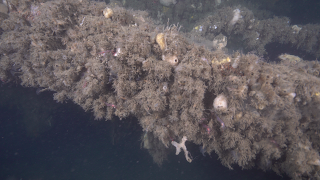The archivist
I'd like to talk about one step in the scientific process that usually goes unnoticed: data archival. Most scientific grants come with an obligation to archive data, especially if those data were collected using public funds. The idea is that science funded with taxpayer dollars through a federal agency should be accessible to the public. Archival also allows other scientists to go back and re-analyze old data in time-series studies or meta-analyses. Databases are becoming more and more important for the scientific community. There are a number of different public archives, each with its own purpose. For example, genetic and molecular biology data are housed in the database GenBank, which is maintained by the National Institutes of Health. Oceanographic and biological data are archived through the Biological and Chemical Oceanography Data Management Office (BCO-DMO), which is actually located at my home institution, WHOI. Seafloor bathymetry data are archived in the National Cente
